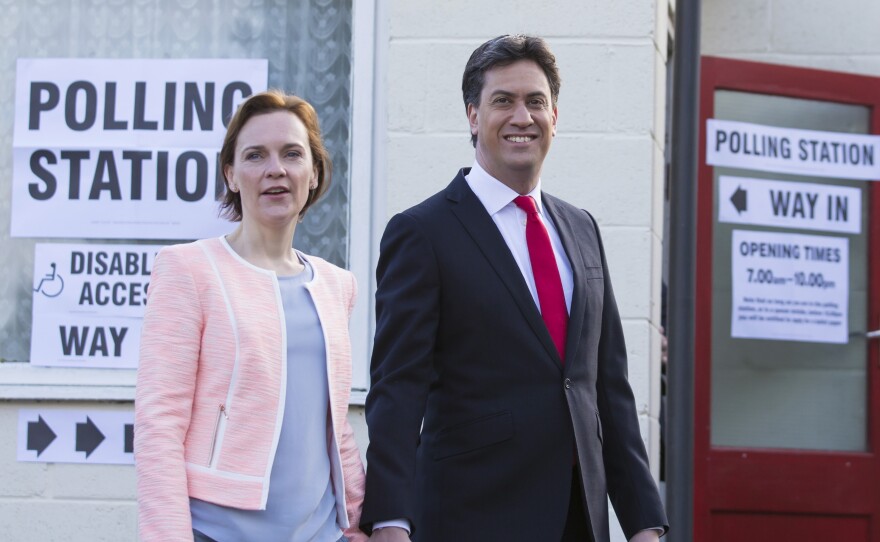Britons are streaming to the polls this morning to pick their next prime minister.
It's a neck-and-neck battle between the ruling Conservative Party led by David Cameron and the Labour Party led by Ed Miliband.
NPR's Ari Shapiro says often these general elections are popularity contests.
"This one is closer to an unpopularity contest," Ari reports. "The campaigning is negative, and the candidates are not exactly compelling."
Case in point, take what Andy Emptage told Ari at a pub in central London: "I find Mr. Miliband a bit weird. And Mr. Cameron, I suppose, is a bit weird as well."
Either way, we'll keep tabs on the voting as it progresses. Polls close at 5 p.m. ET. Refresh this page to see the latest.
Update at 7:52 p.m. ET. How Close?
So, how close an election are we talking about? Via Britain Elects, here are the latest poll numbers:
Update at 7:49 p.m. ET. Some Background:
Last night, Krishnadev put together a bit of background looking forward to the voting. Here's a bit from that post:
"The latest polls show the ruling Conservatives and the opposition Labour Party neck and neck. Voters will pick representatives to the country's 650-seat Parliament. The first party that gets a majority – in this case 326 seats – wins. But neither the Conservatives nor Labour is expected to reach that mark on its own. That's where smaller parties come in. "The Liberal-Democrats, who played kingmakers in the last election by joining a coalition government with the Conservatives, have lost support. The Scottish National Party (SNP), on the other hand, is expected to make significant gains and could play an important role in determining who governs Britain next. Smaller parties, including the U.K. Independence Party (UKIP) and the Greens, could make gains as well."
Copyright 2015 NPR. To see more, visit http://www.npr.org/.






